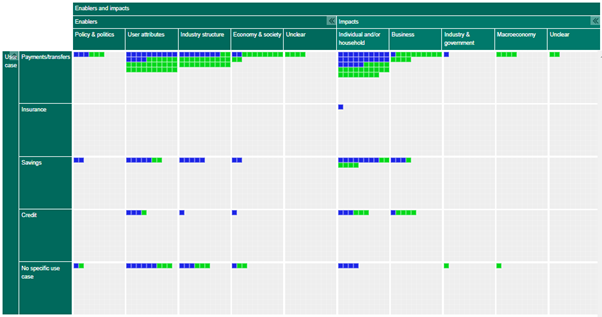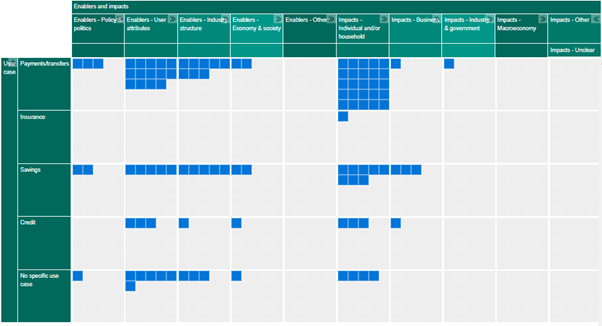Many governments are considering taxing digital financial services (DFS), but to tax them properly we need to understand what enables or prevents people using DFS, and what impact DFS usage has. Our Evidence Gap Map (EGM) brings together all the evidence-based research available on these enablers, barriers and impacts.
An EGM serves to pinpoint where evidence is present and where gaps persist. The evidence is mapped by topic, in a visually intuitive way. This allows you to easily identify the most relevant and robust sources of evidence for your topic of interest.
The Interactive Maps
You can navigate two interactive maps of the evidence:
1. A combined map of high-confidence and medium-confidence studies at a high level of generality. In this map, green boxes indicate high confidence studies while blue boxes indicate medium confidence studies.
Digital Financial Services Enablers and Impacts: High and Medium Confidence Studies
2. A map of only high-confidence studies, at a detailed level (blue boxes only).
DFS Enablers and Impacts: High confidence only
What the EGM does:
The horizontal axis shows different enablers, barriers, and impacts of DFS, while the vertical axis is what DFS are used for (e.g. making payments, savings, etc.). Clicking on a box brings up a panel with details on each study that contains evidence on a particular enabler/barrier/impact type and use case.
What the EGM does not do:
The presence of evidence does not imply that the evidence is positive, negative, or conclusive in any way. For this, users must read the original study.
Full Report
Our full report on the Evidence Gap Map includes more explanation of the methodology, theoretical foundations, and findings. We are grateful to the EPPI-Mapper platform for hosting our EGM.

